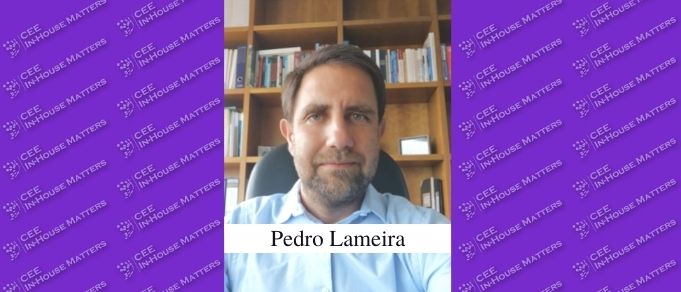On May 19, 2022, CEE Legal Matters reported that CMS had advised Portugal's MGI Capital on the sale of Bezmer Energy to Philicon-97. CEE In-House Matters spoke with Pedro Lameira, CFO at MGI Capital, to learn more about the sale.
CEEIHM: Let's start with a brief introduction of MGI Capital.
Lameira: We are a Portuguese company with a strong export profile and an international presence in more than 65 countries. With more than 100 years of history, our origins date back to the foundation, in 1905, of the A Moderna, Mechanical Sawmill company, which later evolved into a company dedicated to the production of motors, generators, transformers, and electrical accessories and where the necessary skills were created to support the great future developments of what would become the engineering company Efacec.
In the 21st century, as a response to the economic and financial crisis that was felt throughout the world, we adopted a new positioning, which culminated in the resizing of our international structure and the simplification of the portfolio.
At the end of 2013, Efacec Capital began a process of restructuring its subsidiaries, which resulted in the creation of Efacec Power Solutions, SA., which brought together a group of companies that brought together all the means of production, technologies, and technical and human skills for the development of activities in the fields of energy, engineering, environment, transport, and electric mobility solutions, while also covering a vast network of subsidiaries, branches, and agents spread across four continents.
In October 2015, Efacec Capital sold around 70% of the capital of Efacec Power Solutions and had to change its name to MGI Capital. Since then, MGI Capital has focused on developing its business platform in the area of maintenance, and on managing the portfolio of its holdings.
CEEIHM: As reported by CEELM, you recently sold Bezmer Energy in Bulgaria. What brought this deal on and what was it about the target that you believe made it particularly attractive?
Lameira: After having completed the divestment of the three photovoltaic solar parks in Spain, we decided to sell the remaining solar park in our portfolio – the one in Bulgaria. This was a difficult decision, given that it was a park that was working very well and was very well managed, always meeting production objectives. However, the uncertainty regarding future legislative changes in Bulgaria in the renewables area, and the current environment of energy shortages, with record prices, strengthened the decision that this was the ideal time to proceed with its sale.
CEEIHM: What would you say was the most complex aspect of the deal?
Lameira: The current COVID-19 pandemic framework, which greatly limited all traveling and obtaining some documents, evidenced the great collaboration between all the parties, in overcoming the various obstacles. At the same time, the linguistic difference resulting from the use of the Cyrillic alphabet in many of the official documents implied much greater confidence when signing certain documents.
CEEIHM: How was the legal work split between your in-house team and that of CMS?
Lameira: We held several meetings through Teams, to identify possible problems, and define the different alternatives, which allowed us to decide on the way forward. But CMS ended up taking the lead, on our behalf, in resolving many of the issues.
Our legal department also accompanied these meetings and reviewed the documents submitted by CMS, but overall, the requested changes were minimal.
CEEIHM: And why did you choose CMS to advise you on this deal?
Lameira: CMS has been our legal partner since we acquired the park over 10 years ago and we have complete confidence in their work. We couldn't be happier, and I sincerely believe that this operation only went so well because we were advised by them.
Originally reported by CEE In-House Matters.



